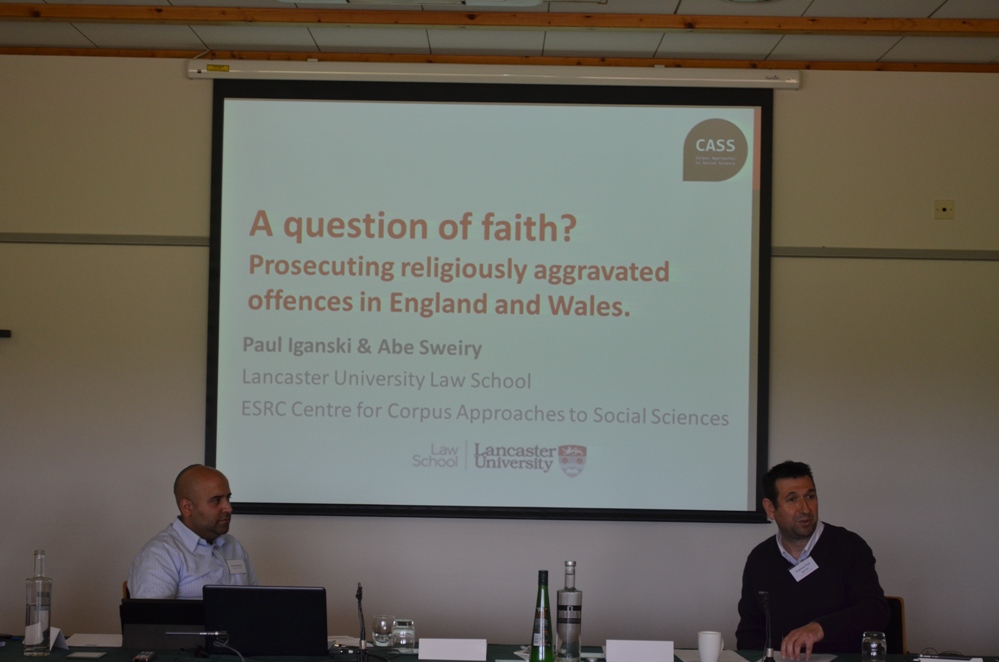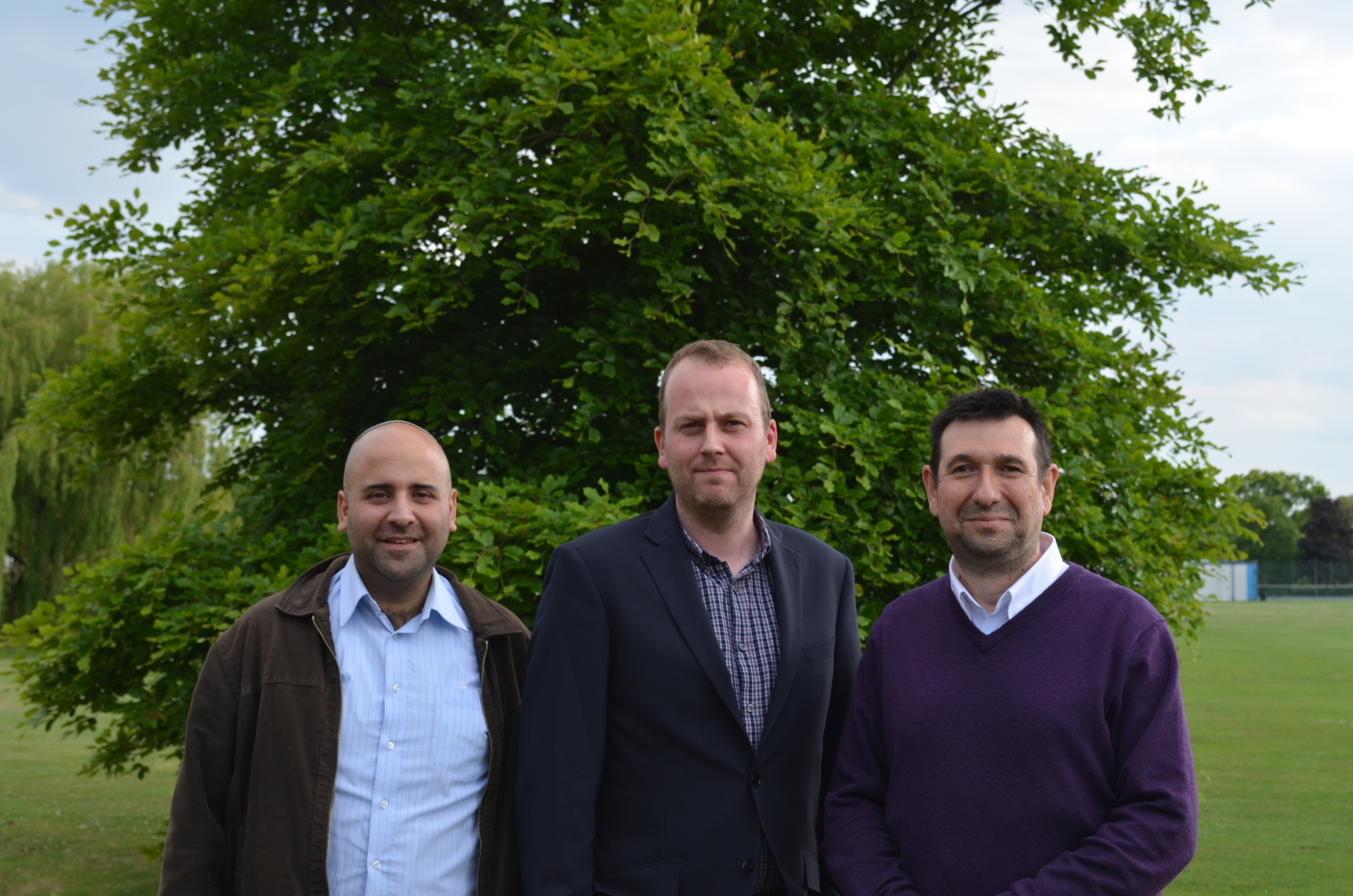The CASS ‘Hate Speech’ project team were invited on the 16th of June to present some of our findings at a Symposium on Anti-Muslim Hate Crime held at the University of Cambridge Centre of Islamic Studies. The Symposium was organised by Julian Hargreaves, a Lancaster University Law School PhD student and Research Associate at the Cambridge Centre.
The symposium brought together academics, community experts and civil society leaders in a unique event that allowed the sharing of knowledge, experience and expertise on the subject from a wide range of perspectives.
The first session of the day focussed on the research approaches and findings from three UK academic centres. Stevie-Jade Hardy from the University of Leicester’s Hate Crime Project isolated and shared some of the project’s key findings on experiences and impacts of hate crime for Muslims in Leicester. Sussex University PhD student Harriet Fearn discussed the early observations she had made in her research on the impacts of hate crime against Muslims on the internet.

Representing CASS and Lancaster University Law School, Paul Iganski and I then delivered a presentation of our work conducted with Jonathan Culpeper examining Crown Prosecution Service files from cases of religiously aggravated offences. In our paper titled ‘A question of faith?’, Paul and I explored the boundaries of free speech, the roles of religious identity and religious beliefs in the alleged offences committed, and the commonalities in the circumstances and contexts which surround offences prosecuted as religiously aggravated.
After lunch, the experiences of representatives from three community organisations confronting hate crime in Britain were shared with those present. Alice Purves gave a compelling account of the challenges faced by the Edinburgh and Lothians Regional Equality Council (ELREC). Jed Din, director of the Bradford Hate Crime Alliance then offered a personal account of the particular challenges of anti-Muslim hate crime and his own visions to develop community cohesion as a response. The session concluded with a presentation on anti-Muslim hate crime in Leicester from Jawaahir Daahir, CEO of the Somali Development Services.
The final session of the day, chaired by Paul Iganski, offered different approaches to documenting and responding to anti-Muslim hate crime. Shenaz Bunglawala, the head of research at MEND, shared insights and observations on the prevalence of anti-Muslim hate crime and attitudes to Muslims in Britain. The presentation included several of the key findings and observations from the research led by CASS director Tony McEnery on Representations of Islam in the British press. Those gathered then had the opportunity to hear from Hayyan Bhabha, the independent parliamentary researcher for the All Party Parliamentary Group on Islamophobia, who shared the latest developments in the work of the APPG and illustrated some of the evidence received or collated by the APPG. The final paper of the day came from Vishal Vora, from SOAS, with a perspective on indirect discrimination towards British Muslim women as a consequence of declarations of ‘non marriage’ by the English family court.

The symposium was a very successful event and Paul and I very much enjoyed contributing to the day. Thanks are due to Julian and to Louise Beazor for putting together a very interesting programme, bringing together a wide range of perspectives on an important social issue, and arranging a highly productive day for all in attendance.
